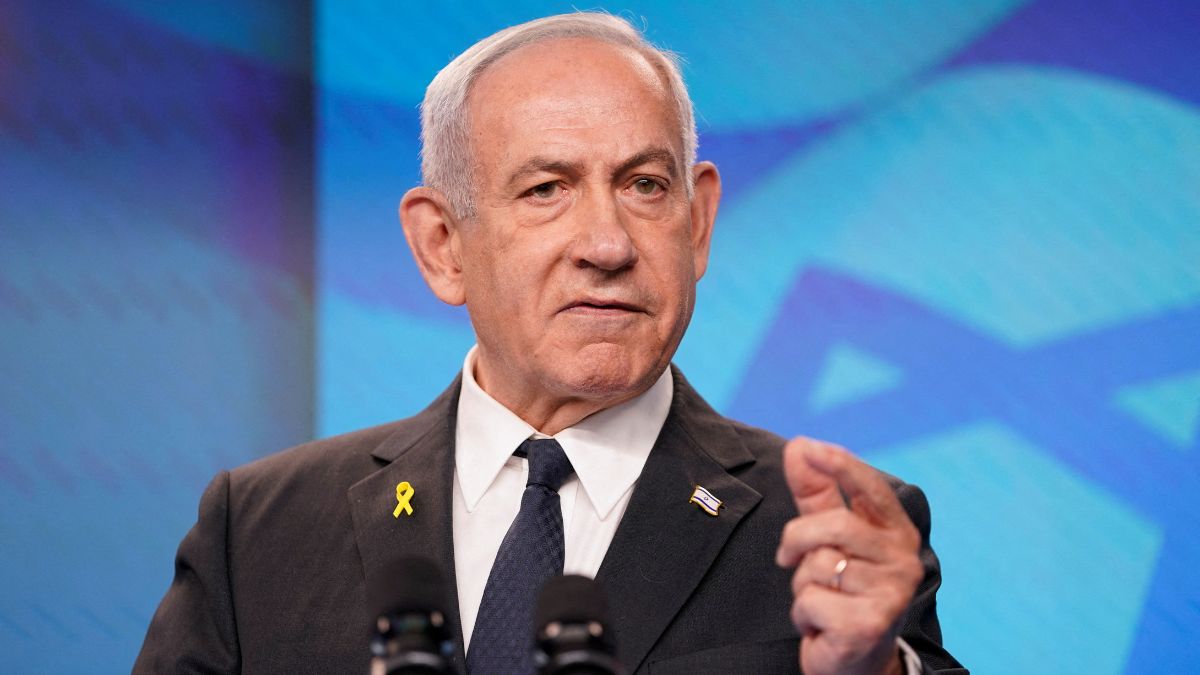Israeli Prime Minister Benjamin Netanyahu, on Monday, stood alongside Donald Trump and declared his acceptance of the US president’s proposal to end the war in Gaza. However only hours later, addressing Israelis in Hebrew, he struck a different tone, insisting he had not endorsed a Palestinian state and that Israeli forces would continue to hold most of Gaza.
Netanyahu’s support for Trump’s Gaza peace initiative has sparked fresh tensions, as he seeks to balance international diplomacy with the survival of his governing coalition.
Netanyahu framed the proposal as a joint achievement with Trump, arguing it shifts international scrutiny onto Hamas, which must either agree to release hostages and disarm or face continued siege. By aligning with Trump, Netanyahu could strengthen Israel’s standing abroad and ease domestic frustration over the nearly two-year war, while also bolstering his prospects in elections expected within a year.
But the plan’s reference to eventual Palestinian statehood has alarmed Netanyahu’s far-right partners, including Finance Minister Bezalel Smotrich and National Security Minister Itamar Ben-Gvir, who reject any pathway to Palestinian sovereignty. Smotrich denounced the proposal as “a resounding diplomatic failure” and dismissed it as “political illusions”, despite his party’s weakening support in recent polls.
The proposal, endorsed across the Arab and Muslim world, demands Hamas free all hostages and surrender its weapons before Israel lifts its blockade. Israel’s military would remain in Gaza until an international force assumes control. Netanyahu confirmed troops would stay in most of Gaza but offered no timeframe.
Impact Shorts
More ShortsPublic pressure is mounting on Netanyahu, with a new poll showing 66% of Israelis believe it is time to end the war, including nearly half of right-wing voters. Analysts note that Netanyahu risks a coalition collapse if Hamas accepts the deal, but success in securing hostages’ release and advancing ties with Arab states could reshape his political fortunes.
Fragile coalition and uncertain future
Opposition parties across the spectrum have also demanded an end to the conflict, often criticising the influence of far-right ministers. Netanyahu, meanwhile, is expected to avoid putting Trump’s full 20-point plan to a government vote, limiting approval to the hostage deal, which would see Israel release hundreds of Palestinian detainees.
Critics warn that Netanyahu could prolong negotiations over unresolved details, such as troop withdrawal, to safeguard his position while diluting Trump’s framework. Some Israeli scholars argue he may later distance himself from the plan and hold Hamas responsible for its failure, a strategy he has used in the past to consolidate power.
International pressure on Israel has intensified, with several allies recognising a Palestinian state and imposing sanctions on Israeli ministers. Despite Netanyahu’s reported efforts to remove references to statehood from Trump’s plan, the final text leaves open the possibility of Palestinian self-determination if reforms are implemented and reconstruction advances.
Standing alongside Trump, Netanyahu described the plan as a foundation for wider peace and potential normalisation with Muslim states still outside Israel’s diplomatic fold. Yet the balancing act between international diplomacy and coalition politics leaves his leadership on uncertain ground as the Gaza war drags on.
United States President Donald Trump said Hamas has “three or four days” to respond to his Gaza ceasefire proposal, adding that Israeli and Arab leaders had already agreed to the plan.
“Hamas is either going to be doing it or not, and if it’s not, it’s going to be a very sad end,” Trump said at the White House on Tuesday.
The US president also expressed gratitude to Israeli Prime Minister Benjamin Netanyahu, who met him in Washington, DC, on Monday, “for agreeing to the plan.”
)